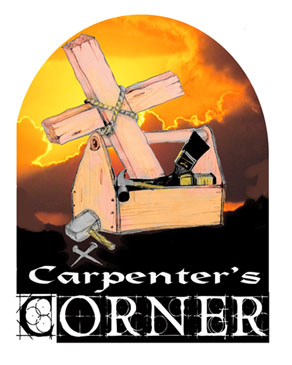The children of Israel left Egypt in haste. The death of Egypt’s first born was the catalyst that led Pharaoh to release God’s people from their slavery. Before leaving, God’s Spirit allowed them to plunder the Egyptians of their golden earrings, necklaces and bracelets. God’s plan allowed them to collect these precious metals, jewels and trinkets for use in the building of the tabernacle furniture.
The children of Israel left Egypt in haste. The death of Egypt’s first born was the catalyst that led Pharaoh to release God’s people from their slavery. Before leaving, God’s Spirit allowed them to plunder the Egyptians of their golden earrings, necklaces and bracelets. God’s plan allowed them to collect these precious metals, jewels and trinkets for use in the building of the tabernacle furniture.
The blood of the Passover lamb had been applied to the doorposts and lintels of their homes allowing all of Israel’s first born male children to survive. As they left, they did not have time to add leaven to their bread starters. They had just enough time to grab what they could, put on their sandals and reach for their walking staffs.
The road ahead of them would be long, hot and dusty as Moses led them by God’s hand toward the land of Midian. He had traveled this road before when he was exiled from Pharaoh’s court as a man of forty. The route Moses chose was a well traveled trade route capable of handling the foot traffic of nearly two and a half million men, women and children.
Although Pharaoh had released them, he quickly realized his folly and sent his army out to re-capture the children of Israel and put them back into chains. Egypt’s army had no problem following the tracts left behind by millions of Israelites as they traveled through the Sinai Peninsula.
Moses knew his destination in Midian, where his family was still living, and knew that there were plenty of resources to sustain them. At about two-thirds into the trek God spoke to Moses “Saying: speak to the children of Israel, that they turn and camp before Pi Hahiroth, between Migdol and the sea, opposite Baal Zephon; you shall camp before it by the sea.”
God was changing things up and turning two and a half million people down through a mountain pass and into the Nuweibian delta. Basically it was the only spot large enough to allow that many people to camp, however, there was one problem; the only way out was the way back through the mountain pass that Pharaoh’s army was now pouring in through.
Confronted by the Red Sea’s Gulf of Aqaba on the east side, steep mountains to the north and south and Pharaoh’s army on the west they soon realized they were trapped. The people immediately lost all hope and turned their fury on their leader Moses who was only following God’s directions.
“And the Angel of God, who went before the camp of Israel, moved and went behind them; and the pillar of cloud went from before them and stood behind them. So it came between the camp of the Egyptians and the camp of Israel. Thus it was a cloud and darkness to the one, and it gave light by night to the other, so that the one did not come near the other all that night.”
The cloud cast darkness on the Egyptians, which were symbolic of the world’s system, captivity to sin and our old nature. The cloud also became a source of illumination to the children of Israel which is symbolic of our new life, being set free from sin and our new nature. Moses is symbolic of Christ who interceded for us by becoming the Lamb of God at the cross.
The Israelites were being tempted to return to the world because their situation looked hopeless. How many times in our own lives has a situation looked hopeless only to find out later that God had a plan all along? It is in these times that we must keep our eyes on the Lord and not allow temptation to lure us back into a world of bondage to sin.
When faced with no way out, Moses raised his rod as God parted the Red Sea for fifteen miles across a sandy bottomed land bridge. The Nuweibian delta is the only area where they could have crossed. A strong east wind dried out the sand and the people walked across to Midian on dry land. Pharaoh and his army were not as fortunate as God caused the waters to return to drown them.











